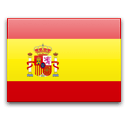
They say that the state of Yucatan is the safest. After leaving Villahermosa and the state of Tabasco we started to see more police on the road, with a smile on their face. When entering the Yucatan we are stopped, they ask us where we are going and they even make sure that our GPS sends us on the right path.
We had to stop at a beach, our first beach in over 2 months. Hot water.

We arrived at Pedro's house and started off on the right foot. Pedro takes us to a birthday party where we eat typically Mexican style. He is even surprised. With the fork we eat the pasta, with the hand we separate the meat into smaller pieces that we roll in the corn tortillas, previously dipped in the spicy sauce. In between, we still have a few bites of an Abanero chili, they say it's the second spiciest in the world. Tears flood our eyes, nothing a beer can't fix.
We leave the party and Pedro has another family party. We say that we prefer to rest awhile. He leaves and returns two hours later to pick us up for a new meeting. Let's see the boxing match between a Mexican fighter and the world champion. We brought beer and ended the night singing karaoke.

Pedro is a connoisseur of history, but above all he is curious. We keep talking, or talking. We talk a lot about politics, corruption, interests. He tells us that he has already received couchsurfers from many countries, and that he loves to drink their information. people from cold countries are much more productive than people from warmer countries: they only have 6 months to cultivate their things, if they are late for a day they can ruin everything. moved to New Zealand and that everything was so perfect there that he got bored not being able to speak ill of anything and that he ended up leaving the country.
The next day we left a little late, and went to Campeche. A small medieval style village.

From there we left for Mérida, from where we would move to discover some more local wonders. Yucatan is the cradle of millenary cultures, but also marked by a luxuriant nature. Like Sisal, a small fishing village with hot water that seems to have stopped in time. It's perfect for a swim and, if it's the season, to see flamingos flying over the area.
Around Mérida there are still many Mayan ruins. We wanted to go and see the Casa das Sete Bonecas, and we discovered the magic of this people and the knowledge they had of all astronomy. Priests/astronomers stood near their pyramids to assess the phenomena, and each phenomenon like an eclipse meant a time of change. Many times the Mayas went to the other side and covered up the pyramids they had built out of respect for the gods. If they came back again, they would build again. When the Europeans arrived there was already a prophecy that from now on everyone would be slaves, animals, humans, even words.

Homun surprised us. The Yucatan peninsula is full of cenotes and we who had been disappointed with what we saw near Casa das Sete Bonecas, spoke with Ivan, a couchsurfer who welcomed us in Mérida. He recommended us to stop by. Then even getting to our guide was easy. We'll talk about it in another post. Cenotes are connections between the surface and subterranean wetlands. Cenote waters are generally clear because it comes from rainwater filtering slowly through the ground and therefore contains few particles. The Mayas believed that the water in the cenotes was purified. It is water that seeps in from the rain and then the cenotes are all linked together, culminating in the sea.

There is a Mayan prophecy that says that when all the water in the world is gone, there will be only one cenote with water and then we will have to sacrifice the life of a child to have water. Therefore, we must be aware of its use.
That same day we left for Izamal, a magical puebla in Yucatan. Known as the yellow village, and for a place where we can see three cultures at the same time. Mayan Pyramids, a colonial convent and the daily life of a busy town, with its market and hospitable people. We slept there and woke up to the police band hoisting the flag. Arrive Mexico!




